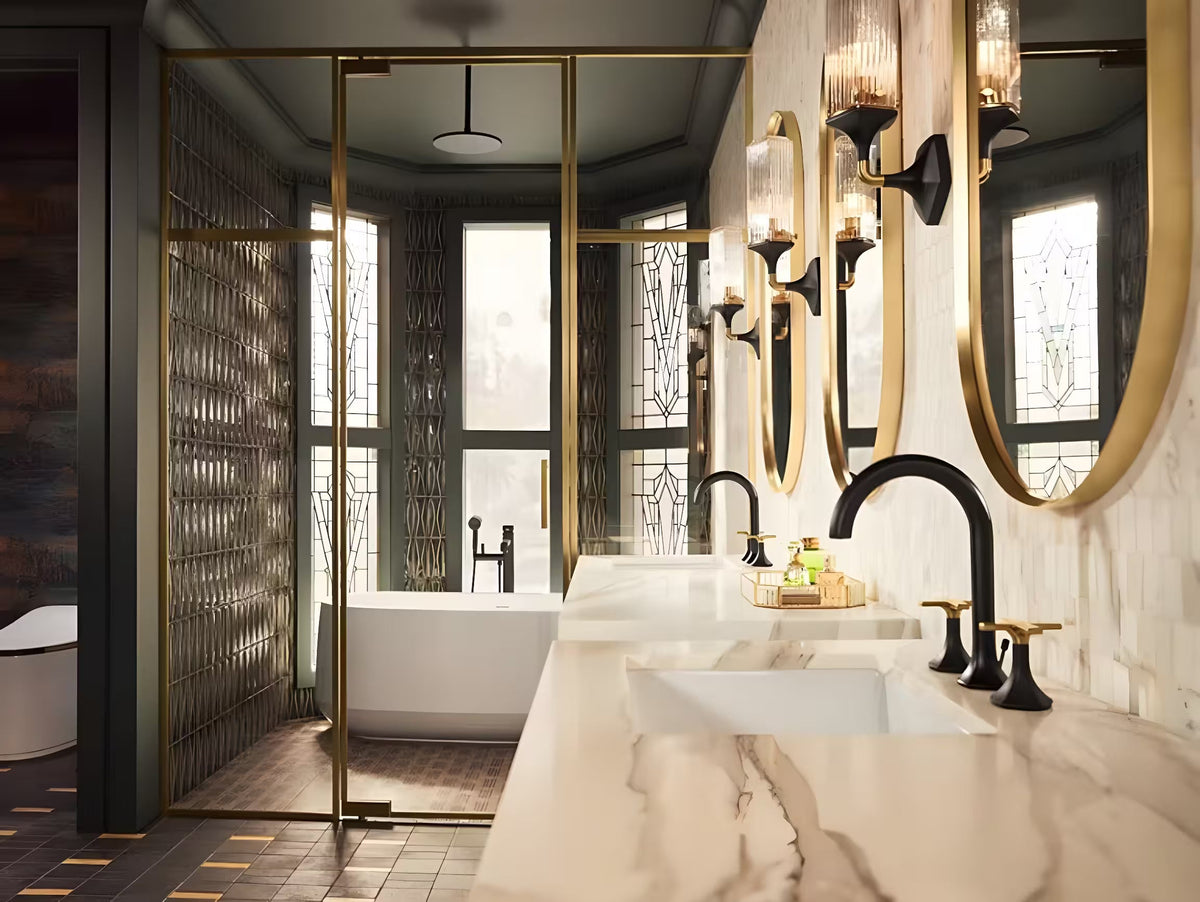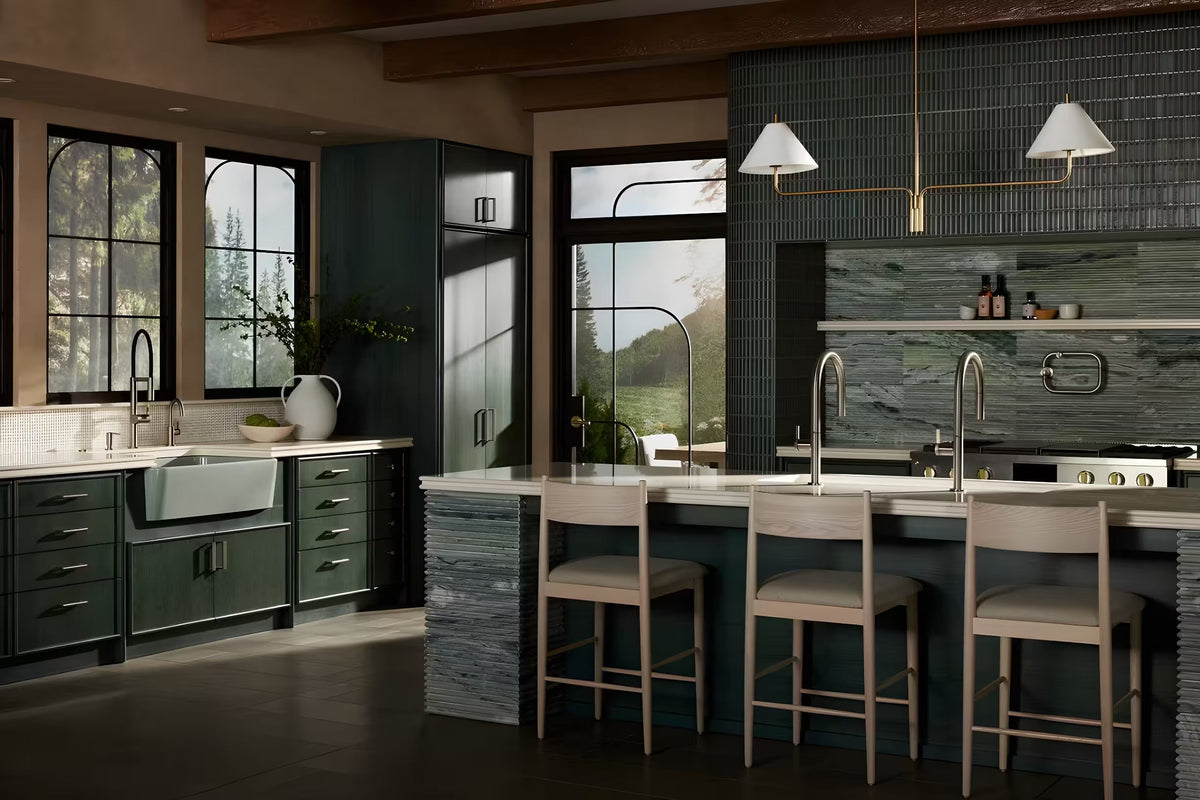Floor lamps are not just functional pieces of lighting; they can also significantly impact the aesthetic and ambiance of your living room. Knowing where to place a floor lamp is key to making the most out of your space, whether you want to create a cozy reading nook, brighten up a dark corner, or add a decorative touch.

Factors to Consider Before Placing a Floor Lamp
Purpose of the Lamp
The first thing to consider is what you want the floor lamp to achieve. Is it for task lighting, such as reading? Or is it more about enhancing the general ambiance of the room? Defining the lamp's purpose will guide its placement.
Living Room Layout
Your living room's layout is another critical factor. Take into account where your furniture is placed and how people move through the room. Floor lamps should complement the layout, not disrupt it.
Existing Light Sources
Consider the existing light sources in your living room. A floor lamp should work in harmony with overhead lights, table lamps, and natural light from windows, filling in gaps where light is lacking.
Ideal Locations for Placing Floor Lamps in Your Living Room
Beside Sofas
Placing a floor lamp beside your sofa is a practical choice, especially if the sofa is where you spend time reading or watching TV. The lamp can provide focused light that makes the space more comfortable and inviting.
Behind Armchairs
Another excellent spot for a floor lamp is behind an armchair. This setup is perfect for creating a cozy reading corner. The lamp adds both functionality and style, turning a simple chair into a comfortable retreat.
In Corners
Corners often get neglected, but they can be transformed with the right floor lamp. A tall lamp in a corner can brighten up the space, making the room feel more open and welcoming.
Next to Desks or Tables
If you have a desk or a small table in your living room, placing a floor lamp next to it can enhance the area’s functionality. It provides extra light for tasks such as writing or working on a laptop, while also adding a stylish element.
Near Bookshelves
A floor lamp placed near bookshelves can serve a dual purpose. It illuminates the shelves, making it easier to find books, and adds a decorative touch that enhances the room's overall look.
How to Use Floor Lamps for Different Lighting Needs
Task Lighting
For task lighting, place the floor lamp close to where the task will be performed, such as next to a reading chair or a work desk. Adjustable floor lamps are ideal for this purpose as they allow you to direct light exactly where it's needed.
Ambient Lighting
For general room lighting, position floor lamps around the perimeter of the room. This helps to create a soft, overall glow that enhances the atmosphere without overpowering it.
Accent Lighting
To highlight specific features in your living room, use floor lamps as accent lighting. Position them near artwork, plants, or architectural features to draw attention and add depth to the space.
Tips for Arranging Multiple Floor Lamps
Creating Balanced Lighting
When using multiple floor lamps in one room, balance is key. Avoid placing all the lamps on one side of the room. Instead, spread them out to create an even distribution of light.
Layering Lights for Depth
Layering different types of lighting, such as floor lamps, table lamps, and overhead lights, can add depth and dimension to your living room. Floor lamps can serve as the middle layer, providing both ambient and task lighting.
Styling and Design Considerations
Matching the Lamp with Decor
Your floor lamp should complement the room’s decor. Choose a style that matches your living room’s theme, whether it’s modern, traditional, or eclectic.
Proportions and Scale
Consider the size of the floor lamp in relation to your furniture and room dimensions. A large lamp may overpower a small room, while a small lamp might get lost in a spacious area.
Using Floor Lamps as Decorative Elements
Floor lamps can also serve as decorative elements. Choose a lamp with a unique design or bold color to make it a statement piece in your living room.
Common Mistakes to Avoid When Placing Floor Lamps
Overcrowding the Space
Avoid placing too many floor lamps in one area, as this can make the space feel cluttered and cramped. Stick to one or two lamps that provide sufficient light without overwhelming the room.
Obstructing Walkways
Be mindful of traffic flow in your living room. Floor lamps should be placed in a way that they do not obstruct walkways or become tripping hazards.
Choosing the Wrong Lamp Size
Ensure that the floor lamp’s size is proportionate to the rest of the room and its furnishings. A lamp that is too large or too small can disrupt the room’s visual balance.
Where you place your floor lamp in the living room can greatly affect the room's lighting and overall atmosphere. By considering the purpose of the lamp, the layout of the room, and the existing light sources, you can strategically position your floor lamps to enhance both functionality and style.
FAQs
Q1: What is the best place to put a floor lamp in a small living room?
A1: In a small living room, place a floor lamp beside the sofa or in a dark corner to maximize light without taking up too much space.
Q2: Can I use a floor lamp in the corner of my living room?
A2: Yes, placing a floor lamp in a corner can brighten up the area and make the room feel larger and more inviting.
Q3: How do I avoid overcrowding my living room with floor lamps?
A3: Stick to one or two strategically placed floor lamps that meet your lighting needs, ensuring they complement rather than clutter the space.
Q4: Should floor lamps match other lighting fixtures in the living room?
A4: While they don’t need to match exactly, it’s good to have floor lamps that complement the style and color scheme of other fixtures for a cohesive look.
Q5: What is the ideal height for a floor lamp in a living room?
A5: The ideal height for a floor lamp is where the bottom of the lampshade is at or slightly above eye level when seated, usually between 58 to 64 inches tall.







